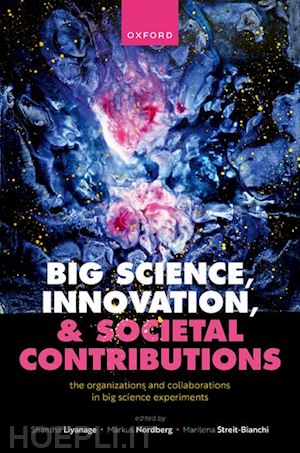Shantha Liyanage obtained a biological science degree, University of Colombo, Sri Lanka and a PhD innovation management at the University of Wollongong, Australia. He held professorial appointments at University of Queensland, University of Auckland, University of Macquarie, and University of Technology Sydney. He directed the Technology Management Centre at the University of Queensland, Australia and held visiting professorial appointments with the Nihon University in Japan, Copenhagen Business School, and Zeppelin University Germany. His research covers education, management, and leadership including management research into CERN's ATLAS and CMS experiments. He is the Editor-in-Chief of the International Journal of Learning and Change, Inderscience, UK. Markus Nordberg coordinates multi-disciplinary innovation projects at IdeaSquare at CERN, and is the co-coordinator of the EU-funded sensor and imaging R&D&I initiative ATTRACT, aiming at both scientific and societal impact of disruptive co-innovation. Prior to this function, he served 12 years as the Resources Coordinator of the ATLAS project at CERN. He is a member of the European Physical Society, Strategic Management Society, and the Association of Finnish Parliament Members and Scientists, TUTKAS. He has a degree both in Physics and in Business Administration. Marilena Streit-Bianchi received a doctorate in Biological Sciences from the University of Rome and joined CERN, the European Organization for Nuclear Research in Geneva in 1969. She has been a pioneer in the study of high-energy particles produced by accelerators for cancer treatment. She has held managerial positions on safety training and technology transfer, has been a senior honorary staff member at CERN, and actively engaged in multidisciplinarity. She is editor and curator of exhibitions in Europe and Mozambique promoting art and science, and is the Vice President of the international association ARSCIENCIA and member of the Italian Physics Society (SIF).











